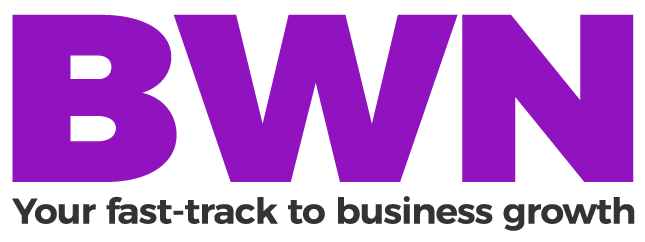How to get paid faster
There are many good reasons for getting your customer invoices paid faster, the best of which is to keep your business afloat. There are also lots of good ways to achieve faster payment. Here are my top 7:
1 Credit-check the customer before beginning work. There are many credit reference agencies who will supply a credit report for a fee. Whilst these can be useful, they should not be relied on exclusively. Get market intelligence of the customer, such as speaking to peers, your bank, or trade bodies. If possible, get the customer’s latest data such as its monthly management accounts.
If the customer is found to be a habitual late payer, perhaps with County Court Judgements or worse, then you might prefer to pass on the opportunity, or take greater precautions. These could range from payment on delivery, shorter credit, splitting up your sales, or demanding a deposit.
2 Make terms and conditions of the contract, invoice, and late payment, complete and unambiguous, so there is no room for misunderstanding or dispute by the customer. For example, avoid ambiguous terms such as ‘30d-net’ or ‘payment due on receipt’. State consequences of late payment such as penalty interest, legal action, or cessation of further supplies. State early payment discounts, bank accounts, and acceptable methods of payment such as card, online, or cheque.
3 Invoice the moment you sell a good or service – before the customer (and you) forget. Make invoicing an automatic step at the point of dispatch or completion of a service.
4 Sell your invoice for cash – this is now possible with single invoice finance. It can be quicker and simpler than conventional debt factoring facilities because (if you use Cash for Invoices Limited for example), no security is required, you sell invoices only when you want to, and you pay just one fee. Invoices from as little as £250 can be sold.
5 Build a rapport with the customer. They are more likely to pay you before a faceless business they also owe money to.
6 Have an action plan prepared in case payment is not made on the due date. This broadly will be 1) contact the debtor for an explanation and simultaneously resend the invoice 2) if still unpaid then contact the debtor and state consequences of further delay 3) if still unpaid then take legal steps to collect payment.
7 Whatever the circumstances, always deal professionally and calmly with the customer and an attitude that is realistic, not stubborn. If communication breaks down payment is likely to be delayed further or even withheld entirely. In such circumstances, consider arbitration.
There is no commercial sense in stubbornly pursuing a debtor who is unable to pay in full, when a voluntary agreement to pay over a longer period would recover at least some of the amount owed and would avoid costly debt collection and legal fees.
Dr P Singh is director at single invoice finance provider Cash for Invoices Limited and an Affiliate of the Business Woman’s Network which means you can work with Cash for Invoices and get a discount.
Sources
Forbes;Business.com; Sage; Entrepreneur.com; Xero.com; Huffington Post
There are many good reasons for getting your customer invoices paid faster, the best of which is to keep your business afloat. There are also lots of good ways to achieve faster payment. Here are my top 7:
1 Credit-check the customer before beginning work. There are many credit reference agencies who will supply a credit report for a fee. Whilst these can be useful, they should not be relied on exclusively. Get market intelligence of the customer, such as speaking to peers, your bank, or trade bodies. If possible, get the customer’s latest data such as the its monthly management accounts.
If the customer is found to be a habitual late payer, perhaps with County Court Judgements or worse, then you might prefer to pass on the opportunity, or take greater precautions. These could range from payment on delivery, shorter credit, splitting up your sales, or demanding a deposit.
2 Make terms and conditions of the contract, invoice, and late payment, complete and unambiguous, so there is no room for misunderstanding or dispute by the customer. For example, avoid ambiguous terms such as ‘30d-net’ or ‘payment due on receipt’. State consequences of late payment such as penalty interest, legal action, or cessation of further supplies. State early payment discounts, bank accounts, and acceptable methods of payment such as card, online, or cheque.
3 Invoice the moment you sell a good or service – before the customer (and you) forget. Make invoicing an automatic step at the point of dispatch or completion of a service.
4 Sell your invoice for cash – this is now possible with single invoice finance. It can be quicker and simpler than conventional debt factoring facilities because (if you use Cash for Invoices Limited), no security is required, you sell invoices only when you want to, and you pay just one fee. Invoices from as little as £250 can be sold.
5 Build a rapport with the customer. They are more likely to pay you before a faceless business they also owe money to.
6 Have an action plan prepared in case payment is not made on the due date. This broadly will be 1) contact the debtor for an explanation and simultaneously resend the invoice 2) if still unpaid then contact the debtor and state consequences of further delay 3) if still unpaid then take legal steps to collect payment.
7 Whatever the circumstances, always deal professionally and calmly with the customer, and an attitude that is realistic not stubborn. If communication breaks down payment is likely to be delayed further or even withheld entirely. In such circumstances, consider arbitration.
There is no commercial sense in stubbornly pursuing a debtor who is unable to pay in full, when a voluntary agreement to pay over a longer period would recover at least some of the amount owed, and would avoid costly debt collection and legal fees.
Dr P Singh is director at single invoice finance provider Cash for Invoices Limited and an Affiliate of the Business Woman’s Network
Sources
Forbes;Business.com; Sage; Entrepreneur.com; Xero.com; Huffington Post



